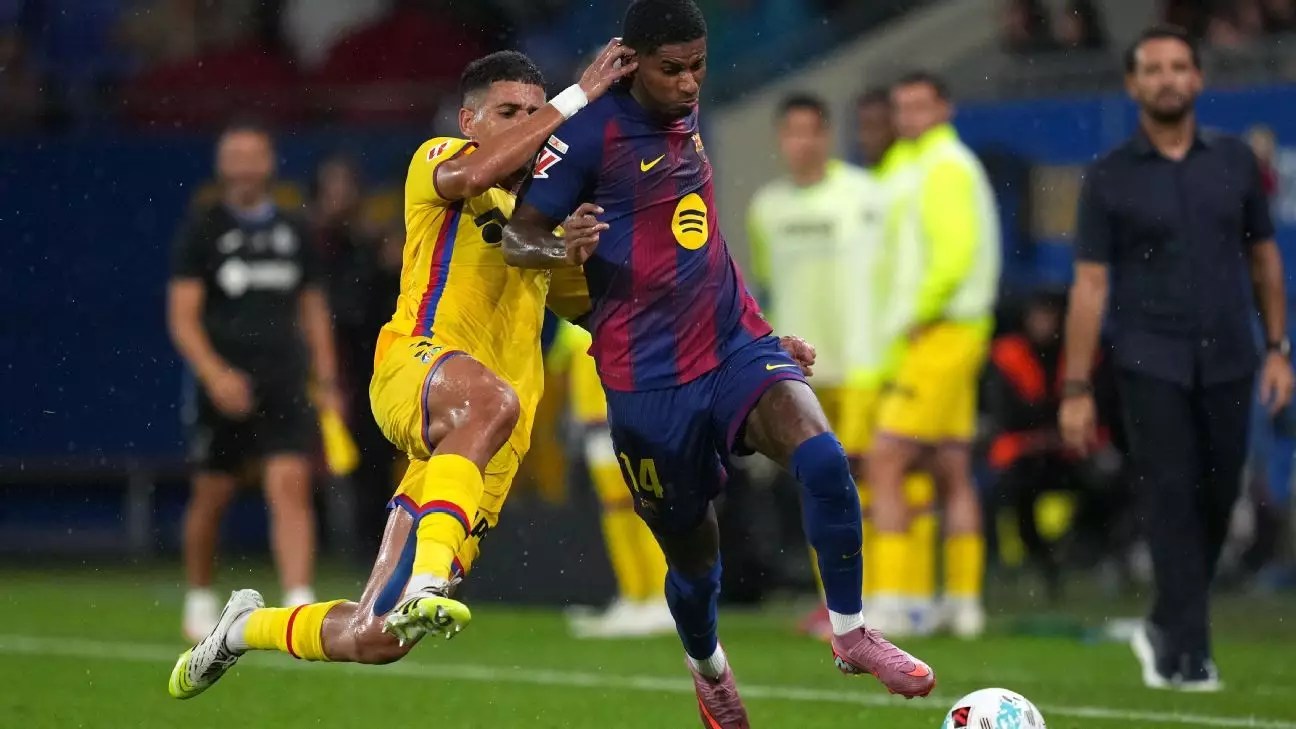Discipline remains an often-overlooked yet vital component of football success. While natural talent and tactical acumen are celebrated, the ability of a team to enforce rules and maintain focus under pressure is what often distinguishes the great from the merely good. The recent decision by Hansi Flick to benchtop Marcus Rashford underscores this point profoundly. Despite Rashford’s recent heroics, Flick’s unwavering stance on punctuality exemplifies a leadership philosophy rooted in discipline over impulse. This approach reinforces the importance of fostering an environment where discipline is non-negotiable — a principle that can significantly influence team chemistry and individual accountability.
A player’s lateness, even if marginal, can ripple through in ways that impact team performance and morale. Flick’s consistent stance—excluding players like Raphinha and others for arriving late—signals a zero-tolerance policy that prioritizes collective discipline. Such measures can be contentious, but in elite football, consistency often yields respect and a culture of professionalism. Rashford, despite his pivotal performance as a substitute, exemplifies how adhering to team rules can sometimes sustain long-term team harmony and ensure that players understand their responsibilities extend beyond just scoring goals. This philosophy reminds us that individual brilliance alone isn’t enough; cohesiveness dictated by discipline often forms the backbone of successful campaigns.
The Balance Between Rest and Regeneration
Flick’s decision to leave Rashford out of the starting lineup following his midfielder heroics highlights the importance of strategic rotation and player management. Football at the top level, especially in leagues as demanding as La Liga, requires meticulous planning around player freshness and injury prevention. Flick’s comment about “every three or four days we have a match” reflects an acute awareness of the physical toll frequent fixtures impose. Resting key players might seem counterintuitive amid a tight schedule, but it’s a strategic move to ensure that players like Rashford are physically primed for the most critical moments.
The significance of this management cannot be overstated. By bringing Rashford on at halftime, Flick not only maintains his influence on the game but also balances physical load. This decision exemplifies how tactical decisions go beyond formations—they involve understanding player fatigue, mental readiness, and readiness to perform at the highest level when it matters most. The praise Rashford received post-match underscores the value of such strategic choices, demonstrating the importance of patience and timing in unlocking a player’s full potential.
The Magnitude of Subtle Leadership in High-Stakes Football
Leadership in football is not solely about commanding on the pitch; it’s about subtle influence and setting standards. Flick’s sideline comments about the team controlling the game and securing three points reflect a leadership style rooted in positivity and focus. Despite minor hiccups, such as Fermin López’s injury concerns, the overarching message remains one of resilience and strategic composure.
This attitude permeates through the squad, as seen in the comments of Ferran Torres and Jose Bordalas. Torres’ critique of Getafe’s fouling, contrasted with Bordalas’ sharp retort, exemplifies the contrasting philosophies that underlie competitive edge. Barcelona’s dominance this season—remaining unbeaten—stems from a combination of disciplined tactics, individual brilliance, and astute leadership. However, it’s also rooted in the nuanced management of player welfare and maintaining team integrity even under challenging circumstances.
In the broader spectrum of football success, it’s evident that the most resilient teams balance ruthless discipline with strategic agility. They understand that every decision – from player selection to handling minor setbacks like injuries or disciplinary issues – adds up to the collective performance. Leaders who enforce standards without wavering foster an environment where excellence can flourish, even in the most intense competitions. This balance of discipline, strategy, and psychological resilience ultimately crafts the defining rhythm of a winning team.


Leave a Reply